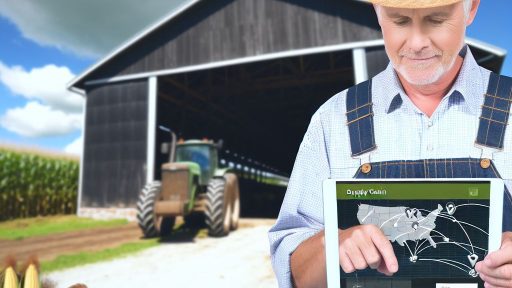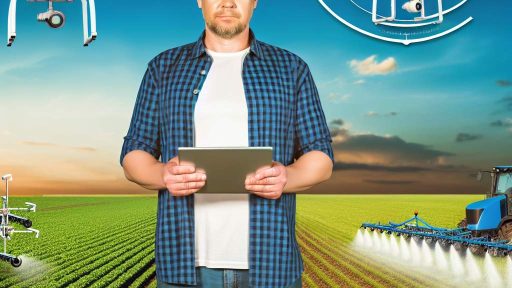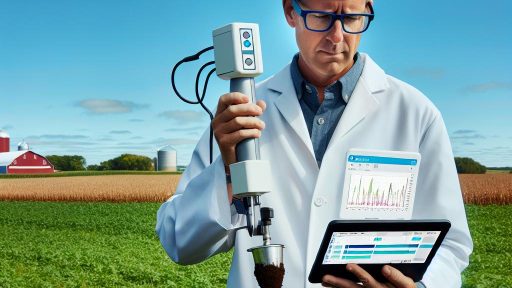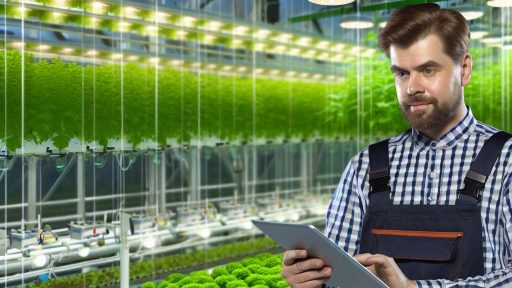Overview of Biotechnology in Agriculture
Defining Biotechnology
Biotechnology encompasses a range of techniques used in agriculture.
It involves the manipulation of living organisms to enhance their traits.
This can include genetic modification, plant breeding, and tissue culture.
The Role of Biotechnology
Biotechnology plays a critical role in enhancing crop yields.
It helps to develop crops that resist pests and diseases.
Additionally, it improves nutrient efficiency in plants.
Benefits of Integrating Biotechnology in Farming
Farmers experience several advantages when using biotechnological methods.
For instance, crops require fewer chemical inputs.
This leads to reduced environmental impacts, promoting sustainability.
Moreover, biotechnology can help in adapting to climate change.
Examples of Biotechnological Advances
Many biotechnological innovations have transformed agriculture over the years.
- Genetically modified organisms (GMOs) now dominate certain markets.
- Biofortified crops provide essential nutrients lacking in diets.
- Biopesticides offer alternatives to traditional chemical pesticides.
Future of Biotechnology in Agriculture
The future of biotechnology in farming appears promising.
Continued research will unveil new methods and applications.
Farmers can expect greater efficiency and resilience in their crops.
Ultimately, biotechnology will support global food security.
Transform Your Agribusiness
Unlock your farm's potential with expert advice tailored to your needs. Get actionable steps that drive real results.
Get StartedBenefits of Integrating Biotechnology with Traditional Farming
Enhancing Crop Yields
Integrating biotechnology significantly boosts crop yields.
This approach improves plant resistance to pests and diseases.
Additionally, it increases tolerance to environmental stresses.
As a result, farmers can produce more food per acre.
Reducing Chemical Inputs
Biotechnology reduces the need for chemical pesticides.
This minimizes harmful environmental impacts.
Moreover, it promotes safer food for consumers.
Farmers can reduce their overall input costs.
Improving Nutritional Value
Biotechnology enhances the nutritional profile of crops.
For instance, biofortified crops contain higher vitamin and mineral levels.
This helps address nutritional deficiencies in populations.
Furthermore, it can lead to healthier diets globally.
Promoting Sustainability
Integrating biotechnology supports sustainable farming practices.
It encourages the use of fewer resources per unit of production.
Additionally, this method can improve soil health over time.
Farmers benefit from a healthier ecosystem in the long run.
Facilitating Climate Resilience
Biotechnology equips crops to withstand climate changes.
It helps plants adapt to varying temperatures and rainfall patterns.
Furthermore, this approach mitigates the effects of drought.
As a result, food security is enhanced in vulnerable regions.
Challenges and Concerns in the Adoption of Biotech Methods
Public Perception and Acceptance
Public perception of biotechnology often revolves around safety concerns.
Many consumers worry about the potential health risks of biotech foods.
Additionally, misinformation can lead to widespread fear and skepticism.
These factors can hinder the acceptance of biotechnological advancements.
Showcase Your Farming Business
Publish your professional farming services profile on our blog for a one-time fee of $200 and reach a dedicated audience of farmers and agribusiness owners.
Publish Your ProfileRegulatory Hurdles
Regulatory frameworks for biotechnology can be complex and time-consuming.
Different countries have varied laws governing biotech crops.
This inconsistency can create confusion for farmers and companies alike.
Moreover, lengthy approval processes can delay innovation in farming practices.
Economic Considerations
Adopting biotechnology often requires significant financial investment.
Farmers may struggle with the upfront costs of new biotech methods.
Additionally, the return on investment can be uncertain.
This uncertainty can deter farmers from embracing biotechnological solutions.
Environmental Concerns
Some argue that biotechnology may lead to unforeseen ecological consequences.
For example, the impact on non-target species is a significant concern.
Furthermore, potential gene transfer between crops raises important questions.
These environmental risks can discourage farmer adoption of biotech methods.
Ethical Issues
Ethical considerations play a crucial role in the debate on biotechnology.
Some view genetic modification as unnatural or unethical.
Additionally, issues of corporate control over seeds and biodiversity arise.
This can lead to concerns about food security and farmer autonomy.
Learn More: Implementing Drone Technology On Modern Farms
Case Studies of Successful Integration in Different Regions
East Africa
In East Africa, farmers have successfully integrated biotechnology with traditional practices.
For example, the introduction of drought-resistant maize has transformed local agriculture.
This maize variety withstands harsh conditions, reducing crop failure rates.
Additionally, it enhances food security for families in the region.
India
In India, rice farmers adopted biotechnology to improve yield and reduce pest damage.
Genetically modified (GM) rice has helped lower pesticide usage significantly.
As a result, farmers experience higher profits and less environmental impact.
The success of this integration encourages others in the agricultural sector.
Brazil
Brazil’s sugarcane industry showcases the successful blend of traditional and modern techniques.
Farmers use biotechnology to develop disease-resistant varieties.
This integration has improved cane yields and reduced reliance on chemical inputs.
Ultimately, it supports sustainable farming practices in the region.
United States
In the United States, farmers utilize biotech crops alongside conventional methods.
For instance, Bt corn effectively controls pests while enabling traditional farming.
Farmers benefit from improved crop quality and reduced losses.
This case exemplifies successful coexistence between biotechnology and traditional agriculture.
Europe
In Europe, farmer cooperatives embrace biotechnology within organic farming initiatives.
They focus on disease-resistant plants to enhance yields sustainably.
This strategy aligns with consumer demand for both sustainability and quality.
As a result, it fosters growth in the organic market across the continent.
Gain More Insights: Choosing The Right Agricultural Drone For Your Farm
Role of Government Policies in Supporting Biotech Adoption
Promoting Research and Development
Government policies play a crucial role in promoting research and development in biotechnology.
They often provide funding for innovative projects in agricultural biotech.
Showcase Your Farming Business
Publish your professional farming services profile on our blog for a one-time fee of $200 and reach a dedicated audience of farmers and agribusiness owners.
Publish Your ProfileFor example, the U.S. Department of Agriculture supports various research initiatives.
Additionally, governments can incentivize private companies to invest in biotech research.
This creates a collaborative environment fostering innovation.
Regulatory Frameworks for Safety
Establishing sound regulatory frameworks ensures the safety of biotech products.
Such frameworks facilitate the approval process for new agricultural technologies.
The European Food Safety Authority, for instance, evaluates the safety of genetically modified organisms.
Strong regulations build consumer trust in biotech products.
Moreover, clear guidelines help farmers understand compliance requirements.
Financial Support and Incentives
Governments can provide financial support to encourage biotech adoption among farmers.
Subsidies and grants can reduce the initial costs of adopting biotechnology.
Tax incentives motivate farmers to invest in new biotech innovations.
These financial measures enhance farmers’ capacity to integrate biotech into their operations.
Education and Training Programs
Education and training initiatives are essential for successful biotech integration.
Government policies can fund programs that educate farmers about biotech benefits.
Workshops and training sessions can enhance farmers’ technical knowledge.
Furthermore, collaboration with universities can improve access to the latest research.
Informed farmers are more likely to adopt new technologies confidently.
International Collaboration and Trade Agreements
International collaboration fosters the exchange of biotech advancements.
Trade agreements can simplify the import and export of biotech products.
This promotes global access to innovative agricultural technologies.
Countries can work together to harmonize regulatory standards.
Such cooperation enhances global food security through sustainable practices.
Learn More: Training Your Team To Use Farm Management Software Effectively
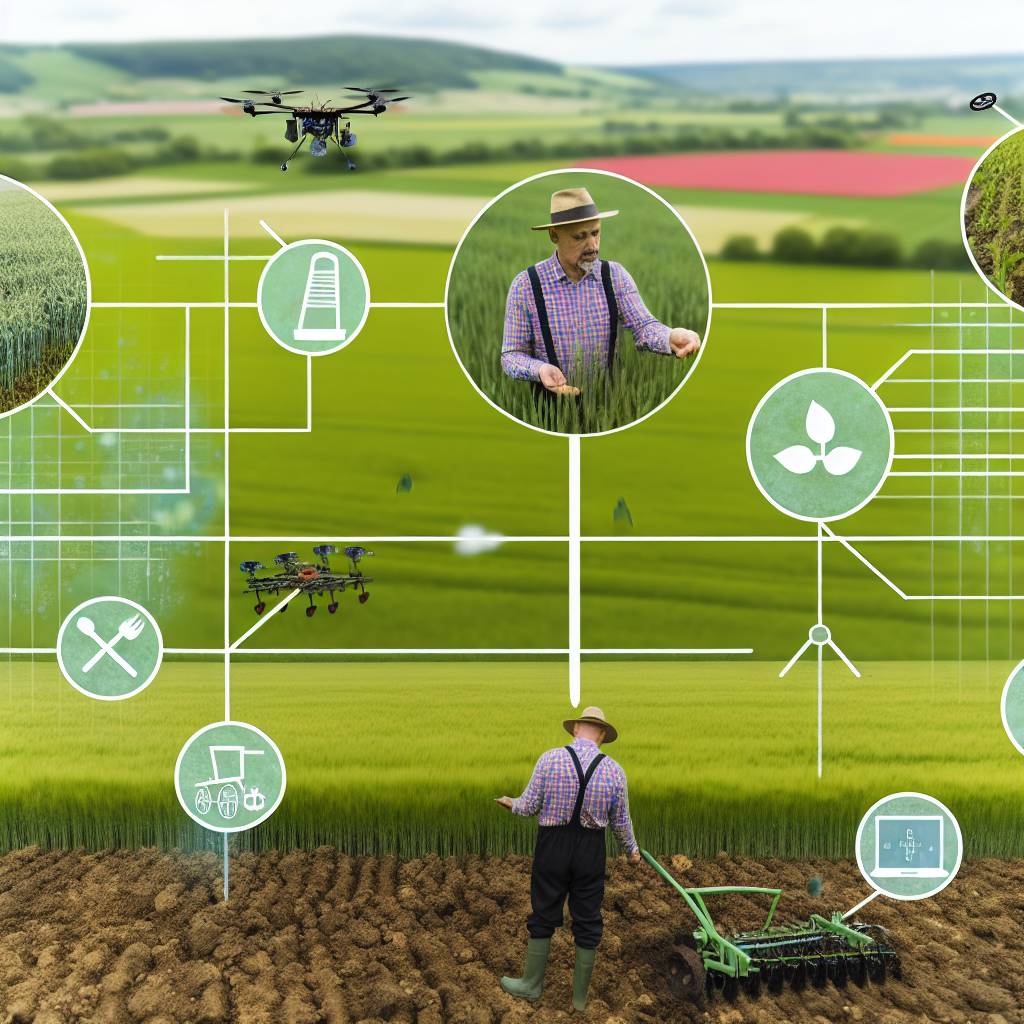
Traditional Farming Techniques that Complement Biotech Innovation
Crop Rotation
Crop rotation enhances soil fertility and structure.
It reduces pest buildup and disrupts disease cycles.
This method pairs well with biotech crops designed for specific pests.
Farmers often observe improved yields and reduced pesticide use.
Organic Fertilization
Organic fertilizers enrich the soil with natural nutrients.
They support the microbial ecosystem essential for plant health.
Biotech innovations can enhance nutrient absorption in plants.
Farmers benefit from increased crop resilience and quality.
Integrated Pest Management
Integrated Pest Management (IPM) combines biological and chemical practices.
It focuses on sustainable pest control methods.
Biotech crops can be designed with pest resistance traits.
This reduces reliance on chemical pesticides and enhances crop health.
Conservation Tillage
Conservation tillage minimizes soil disturbance during planting.
This practice reduces erosion and conserves moisture.
Biotech crops can adapt to no-till conditions efficiently.
Farmers find this combination leads to better soil health and crop yields.
Agroforestry
Agroforestry combines agriculture and forestry practices.
Showcase Your Farming Business
Publish your professional farming services profile on our blog for a one-time fee of $200 and reach a dedicated audience of farmers and agribusiness owners.
Publish Your ProfileThis technique enhances biodiversity on farmland.
Biotechnology can support tree species that benefit surrounding crops.
Farmers see improved ecosystem services and resilience against climate change.
See Related Content: Leveraging Drone Data For Smarter Farming Decisions
Future Trends in Agricultural Biotechnology and Traditional Practices
Emerging Technologies in Biotechnology
Biotechnology continues to evolve rapidly in agriculture.
New techniques improve crop yield and resistance.
Gene editing tools, such as CRISPR, gain popularity.
Farmers can develop resilient crops more efficiently.
Additionally, biopesticides and biofertilizers support sustainable practices.
These innovations often reduce chemical usage on farms.
Integration with Traditional Practices
Combining biotechnology with traditional methods proves valuable.
Farmers can enhance their yields while preserving heritage practices.
This integration promotes ecological balance in farming.
Implementing crop rotation with biotech crops contributes positively.
Moreover, using traditional knowledge can guide modern biotechnology.
It allows for locally adapted solutions to complex challenges.
Consumer Acceptance and Market Trends
Consumer preferences shape the future of agricultural practices.
Many individuals prefer sustainably grown produce.
Consequently, companies must consider transparency in biotechnology.
Certifications can help build consumer trust in biotech products.
This trend encourages farmers to blend traditional methods with innovation.
As a result, hybrid farming practices may become more common.
Regulatory Framework and Policy Implications
Policies surrounding agricultural biotechnology are evolving.
Regulations can impact how farmers adopt new technologies.
Understanding these regulations helps farmers navigate changes.
Furthermore, collaborations between policymakers and farmers are essential.
Such partnerships can foster innovation while ensuring safety.
Creating a balanced regulatory environment will support sustainable farming.
Global Perspectives on Agricultural Biotechnology
Different countries approach agricultural biotechnology uniquely.
For instance, Europe often takes a cautious stance towards biotech crops.
In contrast, countries like Brazil embrace biotechnology more readily.
These varying perspectives influence global market dynamics.
Sharing knowledge across borders enhances agricultural sustainability.
In turn, farmers worldwide can benefit from these advancements.
Educating Farmers on Biotech Tools and Techniques
Importance of Education
Education empowers farmers to make informed decisions.
Understanding biotech enhances productivity and sustainability.
Moreover, it helps in addressing challenges like climate change.
Key Biotech Tools
Genetic modification is a powerful tool for crop improvement.
This technique allows for enhanced resistance to pests.
It also enables crops to withstand extreme weather conditions.
Showcase Your Farming Business
Publish your professional farming services profile on our blog for a one-time fee of $200 and reach a dedicated audience of farmers and agribusiness owners.
Publish Your ProfileBiopesticides offer another innovative approach to pest control.
These natural solutions reduce chemical pesticide use, benefiting health.
Methods of Instruction
Workshops are an effective way to educate farmers.
These sessions provide hands-on experience with biotech tools.
Online courses can also reach a wider audience.
Furthermore, community farms can serve as practical learning sites.
Collaboration with Experts
Partnerships with agricultural universities boost educational efforts.
Experts can share valuable research and innovations.
Furthermore, extension services play a key role in ongoing education.
They provide support and information tailored to local farmers.
Success Stories
Several farmers have successfully integrated biotech into their practices.
For instance, Maria Gonzalez improved her corn yield through genetic modification.
This boost not only increased profits but also ensured food security.
Similarly, Tom Reilly adopted biopesticides and reduced his pesticide costs.
These examples highlight the benefits of embracing biotechnology.
Additional Resources
Precision Agriculture: Benefits and Challenges for Technology …

